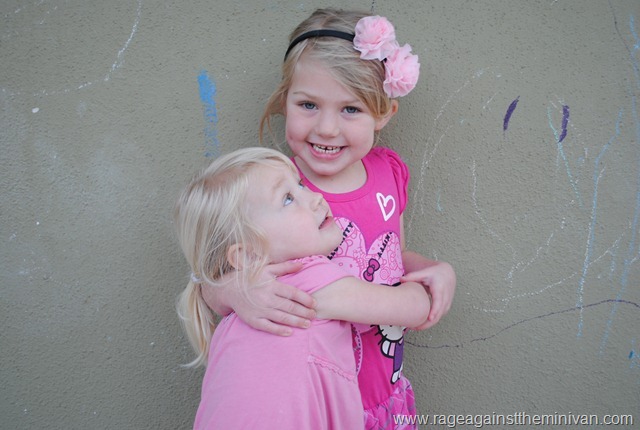Between news stories on bullying and the recent Bully documentary exploring the epidemic, there has been a much-needed national conversation about the problem of childhood bullying. Most of the conversation revolves around how to make sure our kids are not the victims of bullying, and while I think this is a really important conversation, I also think all parents need to consider how to make sure their kid isn’t the one doing the bullying as well.
Any child has the potential to engage in bullying behavior. As a therapist, I tend to think that most bullying occurs by kids who are struggling with self-esteem and empathy, but research indicates that kids often engage in bullying due to peer pressure as well. Bullying gives kids who feel badly about themselves an opportunity to feel powerful, and often is the result of an inability to think about the feelings of others. As such, I want to talk about how to help our children develop empathy, which I believe to be one of the best ways to discourage cruel behavior towards other children.
Most people dislike the idea of their own kid being a narcissist, but the truth is all kids are born that way. While they are cute and cuddly, infants are also completely and totally self-centered. When babies are born, they are concerned about their own needs, and have no concept of thinking about how others are feeling. Other people function to meet their needs, be it food, comfort, or changing. It’s developmentally normal that babies are self-centered and demanding.
Gradually, children come to see that the world does not revolve around them . . . that the other people in their lives have needs and feelings, too. This is a slow development, though, and parents of preschoolers and even elementary-aged children often report feeling like their child doesn’t always consider the feelings of others. While most typically developing children will develop a sense of empathy for others by their teenaged years, as parents we can gently guide our kids to cultivate this character trait.
Here are a few ideas for helping kids develop empathy for others:
Encouraging kids to identify and express their own emotions – Empathy requires us to be attuned to the feelings of others. In order to do this, we must have a working knowledge of emotions in general, starting with our own. By helping our kids put words to their own feelings, we are also helping them identify the feelings of others. For young kids, using phrases like, “use your words”, or “tell me about your feelings” can be an effective tool. For older children, a feelings chart can help broaden a child’s vocabulary about the different emotions they experience.

Reflective listening – Reflective listening is a great skill for families to develop. Reflecting listening basically involves reflecting back to a child that you hear and understand how they are feeling. If your child is feeling sad, it means acknowledging the sadness before you move to a conversation about solutions. While it sounds simple, taking a pause to show that you have heard someone else’s feelings is very powerful. It also helps develop a child’s emotional IQ, which plays a huge role in empathy. When a child feels that their feelings are important, they are more likely to consider the feelings of others.
Empathy coaching – It can be beneficial to a child to dialogue empathy in daily conversation, especially when it comes to situations involving conflict. Get into the habit of talking about feelings during every teachable moment. When siblings are fighting, when a child has disobeyed, or when friends have a disagreement, encourage your child to express their feelings but also encourage them to articulate how they believe the other person is feeling. Repetition can make this practive a habit for kids.
Modeling empathy – Allow your children to see your own though process when it comes to taking into consideration the feelings of others. Being vulnerable enough to say things like, “I’m sorry for hurtng your feelings” or “I wanted to do something else, but I know you prefer this” can send a powerful message to children about how you filter your decision-making based on not just yourself, but others as well.
Consistent response and attention – Research indicates that children who feel safe and secure due to parents who are consistent and attention tend to develop empathy for others more quickly. Helping a child develop a strong sense of self esteem will encourage them to be empathetic to others. Conversely, children who feel poorly about themselves tend to lack empathy for others.
It’s important to note that empathy development can be stunted by a number of things, including physical, emotional or sexual abuse, distant or rejecting parents, neglect, a lack of attachment to an adult, or parents who are manipulative or narcissistic. If you have a child with some trauma in their past, you may need to be even more intentional with empathy development.
Above al, it’s also important to be willing to consider our children capable of bullying. Most kids who bully are good kids involved in bad behavior, with parents who would be mortified to learn their child was the instigator. Keep lines of communication open, observer how your child interacts, and educate on bullying so that kids understand what you expect of them.
Has your child every been involved in bullying, either as a victim, bystander, or bully? How have you dealt with it?
